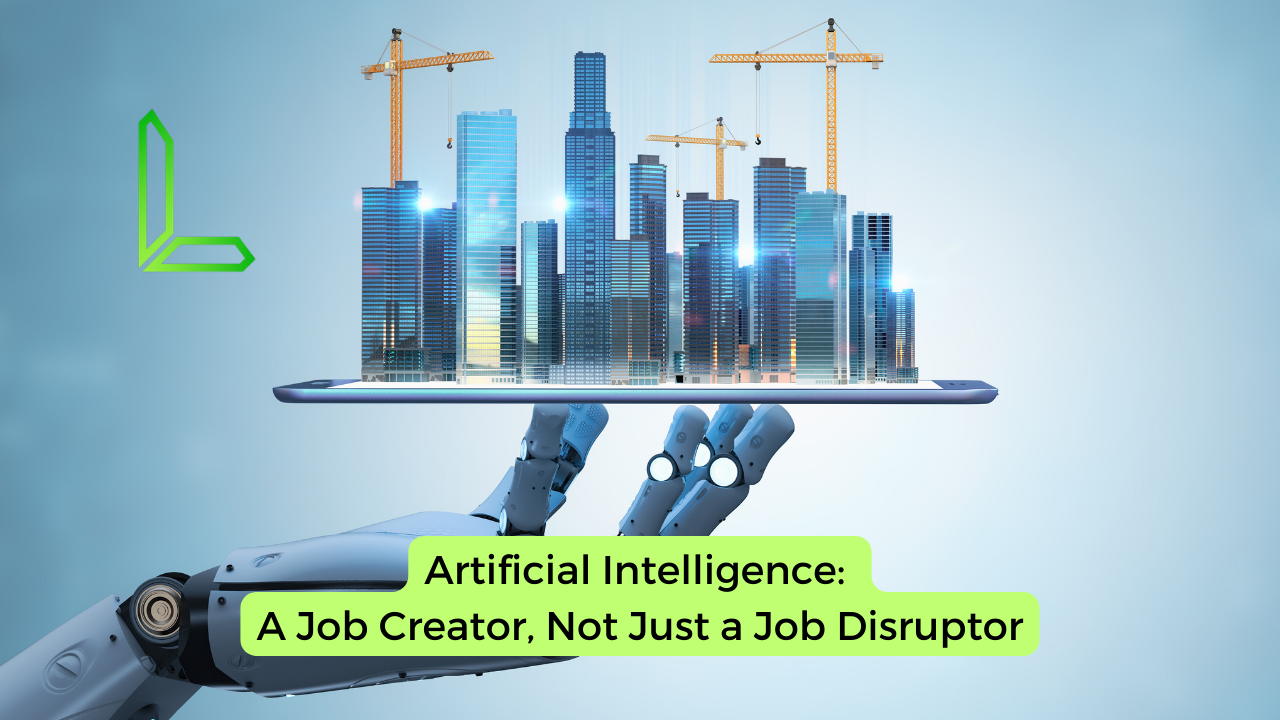
The perceived threat of Artificial Intelligence (AI) and automation to the job market has been widely discussed, as they can execute tasks traditionally carried out by human labor. Our previous article on the pros and cons of AI referenced this concern. However, this perspective doesn’t capture the full picture. By only considering potential job losses, we neglect to acknowledge the job opportunities generated by AI. It’s time to counter the notion that AI only eliminates jobs. Here, we investigate five ways in which AI creates more job opportunities.
Emerging Demand for New Specializations
The sophistication of AI and machine learning technologies demands experts for design, development, and management. As these technologies proliferate, the need for AI and machine learning specialists soars. Such roles include AI software developers, AI data scientists, and AI hardware specialists, among others. Additionally, jobs are emerging to navigate the ethical and legal dimensions of AI, such as AI ethics consultants and AI legal advisors. These roles involve understanding AI’s complex implications and formulating ethical guidelines and regulations for usage.
Revamping Existing Roles with AI
AI possesses the ability to enhance many existing roles, making workers more efficient and paving the way for new growth opportunities. By automating repetitive tasks, AI allows employees to concentrate on more creative and complex aspects of their work. For example, AI in customer service can manage simple inquiries, freeing human agents to tackle more complex issues, thereby improving the overall service quality. Additionally, roles for AI trainers emerge as employees require training to use these AI systems effectively. These trainers can also help refine AI systems to better interpret and react to human interactions.
AI Fuelling the Startup Ecosystem
The rise of AI has spurred a proliferation of startups dedicated to developing and deploying AI technologies. The rapid expansion of these companies has generated countless jobs, ranging from software engineers to sales and marketing professionals. With the continuous evolution of AI and startups’ innovative applications, this trend shows no sign of abating.
Revitalization of Traditional Industries with AI
AI is revolutionizing traditional sectors such as manufacturing, agriculture, and healthcare, creating new job opportunities within these industries. For instance, precision agriculture, driven by AI and machine learning, needs skilled workers to operate and maintain systems. Similarly, the integration of AI in healthcare generates roles for individuals to manage and interpret the vast data produced, leading to emerging professions like health data analysts and AI-based diagnostic technicians.
AI Infrastructure: A Job Creation Avenue
The infrastructural requirements for AI generate myriad job opportunities, including roles for data center technicians, AI hardware engineers, and network specialists. Given that AI systems need substantial computational power and storage, there’s a demand for specialized personnel to manage this infrastructure. Furthermore, integrating AI into existing infrastructure poses challenges requiring the expertise of system integrators, further boosting job creation.
The narrative that AI only results in job losses presents a skewed view of the technology’s influence on the job market. As we’ve demonstrated, AI is already generating job opportunities across various sectors, a trend likely to continue as the technology evolves.
Nevertheless, it’s crucial to recognize that transitioning toward AI necessitates workforce adaptation. Initiatives for reskilling and upskilling will be essential to ensure workers can excel in the evolving job market. Thus, the advent of AI signals an era of job creation rather than mere job disruption.
